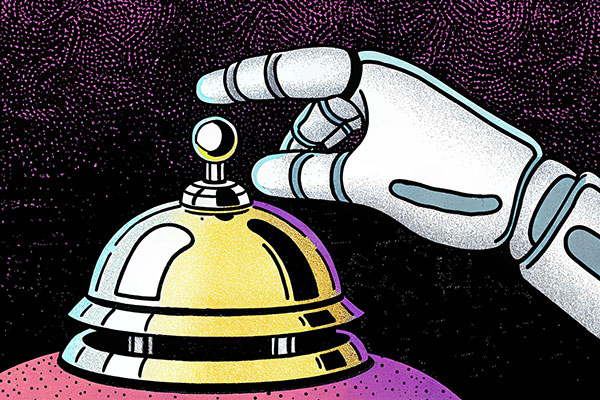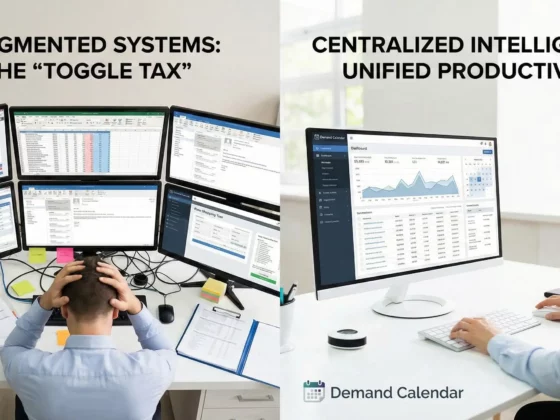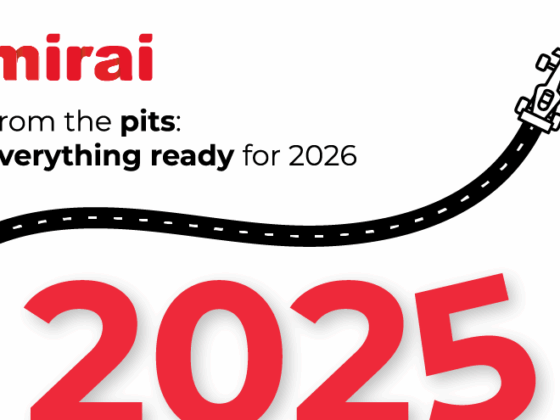Artificial Intelligence (AI) adoption is already making waves across all corners of the industry, with 73% of hoteliers believing that AI will have a significant or transformative impact on hospitality.
According to a recent study by Canary Technologies, the interest in AI has been surging in the recent years, and among hoteliers, this curiosity is evolving into a sense of urgency. Notably, 61% of respondents indicate that AI is either already shaping the industry or will within the next year. However, 40% of the respondents predicted it would take longer.
This strong belief in AI’s potential is driving meaningful investments, with 77% of respondents planning to allocate between 5% and 50% of their IT budgets toward AI tools in the coming year.
“Hospitality professionals now have a valuable resource to help them make key decisions about AI technology,” said SJ Sawhney, president and co-founder of Canary Technologies. “This report shows that the AI revolution in hospitality isn’t just on the horizon — it’s already here. With actionable data and insights, we aim to empower hoteliers to successfully implement AI tools that will drive growth and efficiency.”

The study identified four potentials offered by AI in hospitality:
- Intelligent, automated guest responses
- Boost in revenue and bookings
- Frees up front desk staff
- 24×7 multilingual support
Hoteliers who expect AI to revolutionize the industry are also the ones planning to invest in it. Out of this group, 41% said they will allocate 10-25% of their budget to AI. On the other hand, those who see little to no impact from AI plan to spend far less, or nothing at all.
Leading the Charge
Budget allocation for AI increases with the property of size. At least two-thirds of hotels with 150 rooms or more are dedicating 10% or more of their budget to AI tools. Some 26% of properties with over 500 rooms are allocating more than half of their IT budget to AI-enabled solutions.
While all types of hospitality organizations have been recognizing the impact of AI, hotel brands, management companies and ownership groups have been leading the way in anticipating AI’s impact on the industry sooner. About 60% of these respondents feel AI is already making an impact or will do so in the next year.
AI optimism spans every corner of hospitality, from the front desk to the back office. HR, general managers and IT professionals were highly optimistic about AI’s impact, with 94% or more believing that AI will have a significant, transformative or moderate impact on the industry.
The luxury class emerged to be showing the highest enthusiasm for AI. Nearly 70% of respondents at luxury hotels expect AI to impact the industry now or within one year. Luxury hotels are also allocating more budget for AI, with 67% investing more than 10% on AI tools.
Impacting on Hospitality
AI is expected to redefine hospitality in key areas, with guest engagement emerging as one of the most powerful applications. More than 80% of the respondents said AI will massively reshape pre-booking interactions and guest communications.
AI can change guest engagement by automating personalized messages that are specific to individual guests and instantly translate messages between languages and empowering guests to communicate in their native language. Leading hospitality brands like Wyndham and Best Western have implemented AI to enhance guest experiences and streamline operations, the study noted.
AI can also change the game in helping boost revenue, both through direct (proactive reputation management and loyalty and referrals) and indirect influences (pricing optimization, direct bookings and automated offers).
The findings are based on a survey of over 325 professionals across North America, APAC and Europe, including experts in IT, sales, marketing, operations, front desk, HR and maintenance.









